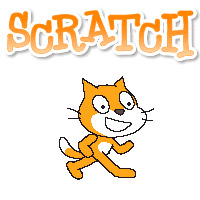Phew! After a busy term, I have finally managed to find the time to reflect upon my Nursery Transition experience. I would like to thank all those at my nursery who helped me develop my learning throughout this opportunity. Three areas which I wanted to develop in particular were communication skills with the children, behaviour management and the layout of the space and how it is used.
My own language was an area which I was less confident with going into this nursery experience. I was unsure how to pitch my level of vocabulary so that it was not too complicated for the children but at the same time not developing the children’s learning effectively. I developed this through observation of the other practitioners and how they interacted with the children, I then tried to emulate this in my own practice.
In order to develop this, I had a great opportunity to be able to observe a ‘school group’ being taken, a group of children either interested or about to move into school in the coming year. These sessions focus on a set learning outcome for the children, the group I witnessed were being introduced to the concept of rhyming using words which they know and exploring the rhyming sound through speech. This was really beneficial as I saw how the practitioner engaged these children through her language and musical rhythm of the words, as one child really engaged with the task when an obvious beat was given to the words and so she used this to the groups advantage through keeping the children engaged but also emphasising the rhyming beat.
Another area of communication I developed was my use and understanding of questioning in a Nursery setting. As I have previously said, I was unsure at what level to pitch my questioning. However, through discussion with the other practitioners and observation I have developed my understanding of this. My main development in this area was understanding that it is not as complicated as I made out to be in my head. At the same time, I saw how fundamentally important questioning is in the nursery setting as there is less direct teaching therefore, effective questioning needs to be enhanced in order to help children learn. At the same time, it is through these conversations that practitioners are able to assess the child’s learning, further showing the importance of this to me.
It was interesting for me to see how the teachers use behaviour management with the children. At the same time, I could see the importance of explaining to the children why what they were doing was good or bad. At this nursery there is a lot of positive feedback given to children which helps to build their self-confidence and general happiness in the nursery. Throughout my experience I tried to replicate the practitioners behaviour management schemes, congratulating children when they have done well and explaining to them why something was bad. This has further drawn out the importance of language choice and tone in order to effectively communicate what I wish to tell them.
The use of space was an area which I wished to understand better, as within any education setting this is an important aspect to learning. More so, maybe, within a nursery setting due to the concept of free play. I believe this nursery is well organised and through working with the same group each week I was able to see the different rooms and how they were being used by the children. At the start of each session the individual learning groups are in a particular room e.g sand and water, and they get to choose an activity to start on. I thought this was a great way of allowing the children to try different things which they may not play on generally while also giving them the chance to choose what they wish to play on. It was clear to me what the different sections of the nursery were and how they were used by the children. It will be particularly interesting to me to compare this nursery with the one that I will visit in May to see how they use the space.
I have learnt a lot throughout this placement but this is just a short overview of my experience. Additionally, all these aspects are areas which I will continue to develop in my official early years placement in March. I am also excited to see how the children transition from a nursery free-play situation to a more formal classroom environment and how this will affect my educational philosophy.







